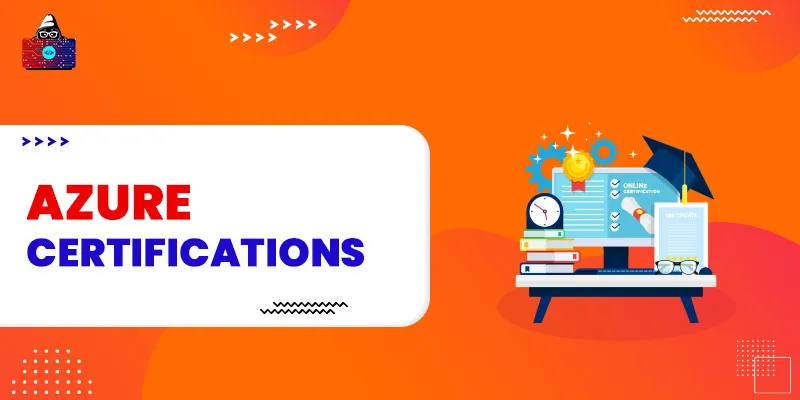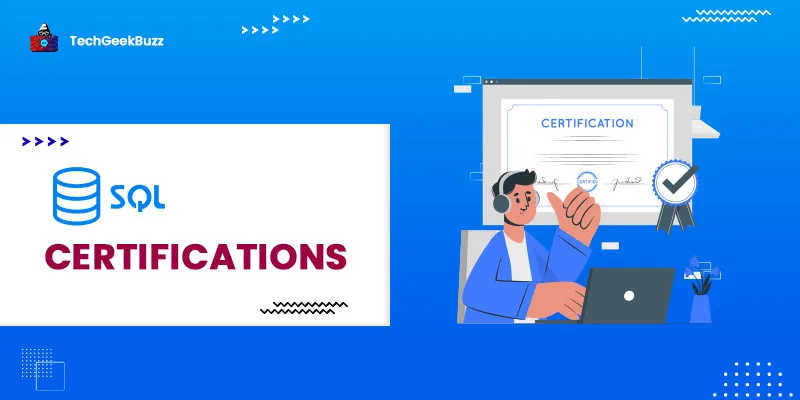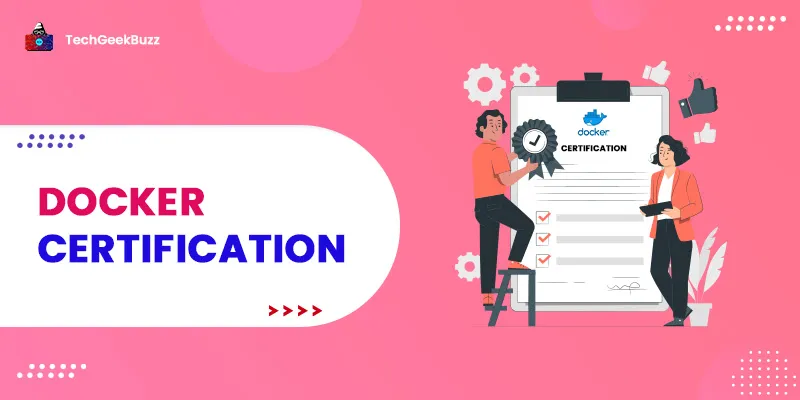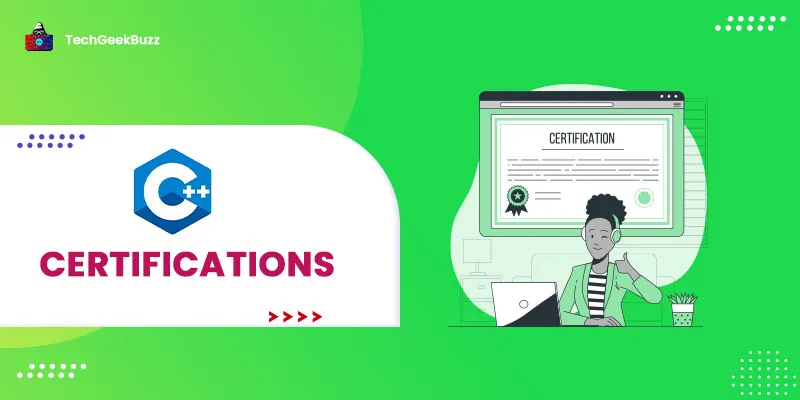Microsoft Azure is one of the most popular public cloud computing services available in the market. As the number of Microsoft Azure clients grows in the business, so does the need for Azure-certified individuals. Acquiring Azure certification is one of the best ways you want to pursue a career in the cloud environment.
In this blog, we'll go over the ins and outs of various Microsoft Azure certifications. More specifically, we have mentioned a list of Azure certifications that enable you to get a top-notch learning experience delivered by the greatest educators.
What is Microsoft Azure?
Azure is a cloud computing platform and online portal that lets individuals access and manage various cloud services and resources. Based on your needs, you can easily access multiple cloud services to facilitate your work. Everything one requires for getting started with Microsoft Azure is an active internet connection. The following are some key things to keep in mind about Azure:
- It was released on February 1, 2010, four years after its major competitor, Amazon Web Services (AWS).
- It's free to sign up and operates on a pay-per-use basis, which means you only pay for the services you utilize.
- Surprisingly, Azure services are used by 80 percent of Fortune 500 companies for cloud computing.
- Java, JavaScript, and C# are among the programming languages supported by Azure.
There are 42 Azure data centers around the world, making it the cloud platform with the most data centers. Also, Azure is planning to add 12 more data centers, bringing the total number of data centers to 54. It is available in 140+ countries and 60+ regions all over the globe.
10 Best Azure Certifications
1. Microsoft Azure Fundamentals (Exam AZ-900)
This is the first stage of Microsoft Azure Certification, and it is aimed to verify that the applicant has a thorough understanding of Microsoft's Azure cloud service. This certification is designed for non-technical applicants who want to learn about cloud computing services to manage various business tasks, such as sales, marketing, and procurement.
Key Highlights
- In-depth discussion of cloud computing principles such as HA (High Availability), DR (Disaster Recovery), scalability, the distinction between CapEx and OpEx, and FT (Fault Tolerance).
- Talks about regions, zones, and resource groups.
- Helps you learn about the Azure architecture components.
- Get informed about the Azure Resource Manager tool for managing Azure resources.
- DDoS protection, Azure Firewall, Azure Subscription, Network Security Group (NSG), and DDoS protection are all covered in detail.
- Learn about Azure subscriptions, how to buy them, how to use the free account service, and how to calculate pricing.
2. Microsoft Azure Administrator (Associate Exam AZ-103)
Launched in 2018, the Microsoft Azure certification aims to verify a candidate's skills and knowledge in monitoring, controlling, installing, and maintaining Microsoft Azure services.
The certification assists you in getting familiar with Microsoft Azure's compute, storage, security, and networking services. This test is an updated version of the two exams, namely Microsoft Azure Associate Exam AZ-100 and AZ-101.
Key Highlights
- You’ll learn how to manage Azure subscriptions and free account services.
- Identify resource groupings and learn how to properly evaluate resource consumption.
- Know how to track usage and manage role-based access.
- Learn how to manage virtual networks and how to configure them.
- Get exposure to Azure files and Azure backups.
- Know how to use the Azure load balancer.
- Enhance your knowledge of the Network Security Group (NSG).
- Learn how to create and manage Microsoft Azure Directory (AD) objects, users, and groups effectively.
3. Microsoft Azure Developer (Associate Exam AZ-203)
The Microsoft Azure Developer certification is created primarily for programmers. Candidates who pass this course become capable of demonstrating their ability to develop, build, and manage cloud application services.
This certification allows you to work with cloud database administrators (DBAs), cloud computing architects, cloud administrators, and even customers. In addition, the candidates will considerably be equal to having one year of expertise in software development for scalable solutions. They will also be considered proficient in cloud platforms' supported programming languages.
Key Highlights
- You'll learn how to manage batch processes and construct ARM (Azure Resource Manager) templates.
- Learn how to set up an AKS (Azure Managed Kubernetes Services) cluster and even build container images.
- Build skills in developing application services for web apps, mobile apps, and API apps, as well as implementing numerous Azure functionalities.
- You'll be able to construct storage table-related solutions, such as blob storage and Cosmos DB storage.
- Authentication, control, and data security are all possible with the Azure security system.
- You'll discover how to use auto-scaling rules and patterns.
- You will develop the ability to examine and troubleshoot solutions using Azure Monitor.
4. Microsoft Azure Security Engineer (Associate Exam AZ-500)
As the name implies, Microsoft Azure Security Engineer certification is for Engineers who wish to learn, develop, and maintain security policies. In addition, it empowers you to safeguard cloud computing data and other associated information, such as apps and networks.
Moreover, it helps you to develop the ability to manage and protect cloud-based solutions, including a hybrid component as part of the end-to-end infrastructure. To pass this exam, you must learn automation, scripting, virtual networking, and other virtual technology-related skills. Furthermore, developing a firm understanding of Microsoft cloud computing services and many similar products will help you become a cloud computing expert.
Key Highlights
- You will learn how to set up Microsoft Active Directory for various workloads.
- Learn about Azure AD's privileged identity management services.
- Understand how to use the Azure tenant security system and set up network and container security.
- Configure Azure monitor, Azure log analytics, Secure policies, and security alerts.
- Learn how to use SSL/TLS to secure data infrastructure, and handle key vaults and data encryption.
5. Exam AI-102: Designing and Implementing a Microsoft Azure AI Solution
Microsoft Azure AI Engineer is an associate-level exam developed for candidates who want to implement Microsoft Artificial Intelligence solutions. It helps you develop expertise in natural language processing systems, computer vision, bots, speech, and even cognitive services, knowledge mining, and machine learning.
At the end of this Azure certification, you will be able to demonstrate competence in analyzing various Artificial Intelligence solution requirements. Also, you will get to know about appropriate tools, approaches, and solutions to effectively satisfy the scalability and performance requirements.
Key Highlights
- You'll learn how to choose the best processing architecture and data processing technologies for managing AI services, as well as how to determine when automation is required as part of a solution.
- Learn how to create strategies for consuming and egressing data, as well as how to integrate bots and AI solutions.
- You would be able to learn how visitors can be authenticated using AI.
- Create Artificial Intelligence pipelines and discover how to put the workflow and data logging procedure into action.
6. Microsoft Azure Data Scientist (Associate Exam DP-100)
The Microsoft Azure Data Scientist is an associate-level exam that assesses a candidate's abilities and expertise in building and implementing data science solutions on Microsoft Azure.
Individuals who qualify for this exam will be able to work on multiple Azure machine learning methodologies to model training, evaluation, and deployment to solve a variety of business difficulties and problems.
Key Highlights
- You'll learn how to set up and configure several types of Microsoft Azure data science environments.
- Recognize abnormalities and configure data into a usable data collection.
- Recognize data inconsistencies and assess model performance.
7. Microsoft Azure Data Scientist (Associate Exam DP-203)
The DP-203 Azure certification exam is meant to assess your knowledge of how to implement various types of Azure Data solutions, such as data storage, streaming development, security implementation, accessing external data sources, and batch processing.
In addition, you must learn how to access external data sources and implement data preservation regulations. Also, it validates your skills related to the use of Azure SQL, Azure Cosmos DB, Azure Stream Analytics, and Blob storage services.
Key Highlights
- You'll learn how to use both relational and non-relational data storage systems.
- Make the usage of data encryption and data masking techniques for managing data security systems.
- Create batch and streaming processing solutions.
- Manage data processing, data storage, and Azure data solution.
- Learn how to encrypt data both at rest and in motion.
8. Microsoft Azure Developer Associate Exam AZ-204
This Azure certification path is designed to help you prepare for the AZ-204 Developing Solutions for Microsoft Azure exam. Even if you don't plan to take the exam, the course will help you gain a solid understanding of developing applications on Azure.
Candidates who pass the AZ-204 exam will earn the Microsoft Certified Azure Developer Associate certification. Individuals will learn how to create computer solutions, such as Infrastructure-as-a-Service, Platform-as-a-Service, and Function-as-a-Service, in the first part of the course. Afterwards, they will learn how to keep track of the solutions, how to debug and improve them. Finally, the course will teach how to connect to Azure services and third-party services and utilize them.
Key Highlights
- Learn about various IaaS services such as VM provisioning, RM template creation, and Azure functions.
- Create storage solutions for Cosmos DB and blob storage.
- Explore Azure security features such as user authentication and authorization, as well as role-based access control (RBAC).
- Develop code from scratch for CDN and troubleshoot Azure solutions.
- Create APIM instances, event-based solutions, message-based solutions, App Service Logic, along with implementing API management.
9. Microsoft Azure Database Administrator Associate Exam DP-300
This Azure certification course by Microsoft is prepared for the Microsoft Azure DP-300 Administering Relational Databases test. The lab session will assist you in getting started on the path to becoming an Azure SQL database specialist.
The Azure Database Administrator Associate certification requires passing the DP-300 exam, which is part of Microsoft's new role-based certification.
Key Highlights
- Design and execute data platform resources, such as database solution deployment on specified platforms and customized deployment templates.
- Establish a secure database architecture, such as Azure AD authentication.
- Know how to monitor operations and carry out performance-based maintenance actions.
- Examine queries, indexes, and tables in the database.
- For continual services and backups, design and execute a High Availability and Disaster Recovery (HADR) strategy.
10. AZ-303 Exam Preparation: Technologies for Microsoft Azure Architects
This Azure certification will assist you in studying for the AZ-303 Microsoft Azure Architect Technologies test. This course comes with hands-on labs that will teach essential developing skills required to manage a wide range of Azure services.
The AZ-303 exam assesses your knowledge of some of the most crucial concepts. Individuals must be aware of monitoring Azure infrastructure, which is the most comprehensive area. Moreover, learners should also have information regarding storage, virtual machines, networking, Azure Active Directory, and more.
Key Highlights
- Know the implementation of active directory, infrastructure monitoring, storage accounts, and virtual networking.
- Manage Azure cloud workloads as well as network security and load balancing.
- Create and configure AKS for container-based programs
- Establish Azure SQL and NoSQL databases .
Conclusion
Finally, candidates for the Microsoft Azure certification must have to go through lots of hands-on activities and hours of the learning process. It is the most sought-after Azure certification in the IT industry, and obtaining it would prove candidates' honest efforts and commitment.
Successful candidates are more likely to attain better opportunities and higher pay in reputable companies anywhere. Do you have more suggestions for Microsoft Azure Certifications? Let us know in the comment section below.
People are also reading:
- Best Cloud Storage Services
- What is Cloud?
- Difference Between AWS and GCP
- What is AWS
- AWS Interview Questions and Answers
- Best AWS Books
- HTML Certifications to Become a Web Developer
- Best Java Certifications to Boost Your Career
- Most Valuable SQL Server Certifications
- Machine Learning Certifications to Get in 2022





Leave a Comment on this Post